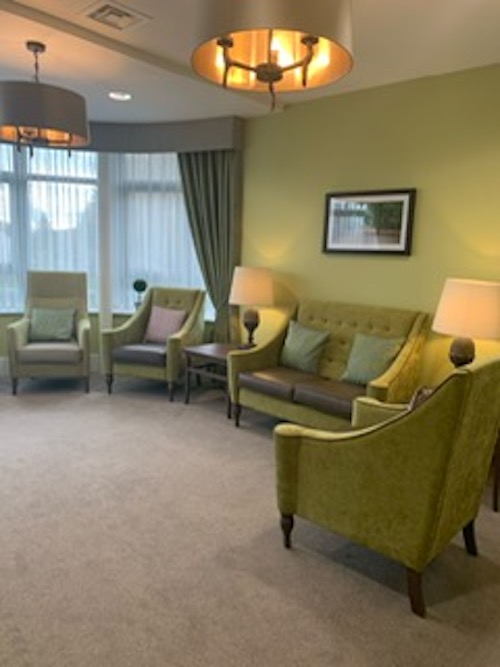What Are the Questions to Ask a Care Home When Considering the Transition?
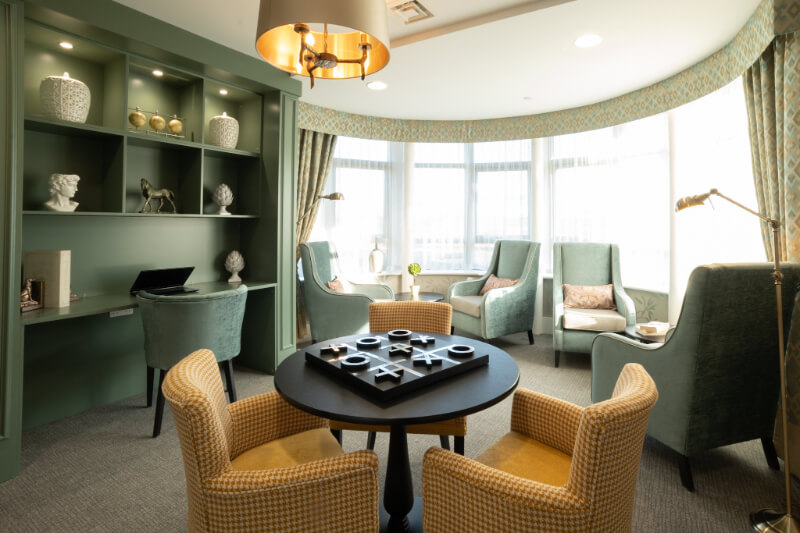
When choosing a suitable care home for you or a loved one, there is a lot to consider which is why it is vital to know what to check for before deciding on a care home in your desired area. Because there are so many factors to consider, it is easy to overlook certain details that could end up affecting a person’s quality of life during their stay in a residential care home or nursing home. In order to make this process slightly easier, we have put together the common factors you should look out for when you begin the process of finding a care home.
What to Check for When Choosing the Right Care Home?
Choosing the right care home isn't always an easy decision, and it's crucial to recognise that each care home is distinct, holding its own unique set of core values. The responsibility falls upon you to learn which care home aligns best with your preferences and supports the specific needs of you or your loved one.
At the very least you'll want to consider the ambience and atmosphere of the care home, as it significantly contributes to the overall experience. Assess the look and feel of the care home, taking note of its physical environment, communal spaces, and residential quarters. Evaluate whether the atmosphere is warm, inviting, and conducive to a sense of community.
Additionally, you should look into the care home's core values, as these principles shape the approach to resident care and services. Understanding the values that underpin the care home's philosophy ensures alignment with your own expectations and priorities.
Understand the array of services offered, from medical care to recreational activities, ensuring they align with the specific needs and preferences of the resident. By considering these factors, you can develop a comprehensive care home checklist that guides you towards a choice that not only meets but exceeds your expectations.

What Type of Care Services are Offered in a Care Home?
In the world of care homes, diversity prevails, with some homes specialising in specific types of care while others adopt an all-inclusive approach, presenting a selection of care options. Knowing when to consider residential care, dementia care, nursing care or residential care can help with choosing a care home that is most suitable for you or your loved one.
- Residential care is a foundational option, providing a supportive living environment for individuals who require assistance with daily activities but do not necessarily need extensive medical care.
- Dementia care, on the other hand, is tailored to individuals facing cognitive challenges, offering specialised services to meet the unique needs associated with various forms of dementia.
- Nursing care is distinguished by its provision of medical services, making it suitable for individuals with complex healthcare requirements.
- Respite care serves as a temporary relief for primary caregivers, allowing them to take a break while ensuring their loved ones receive professional care.
Understanding these diverse care options empowers individuals and families to make informed choices, selecting a care home that aligns with their specific needs and preferences.
What Does Residential Care Mean?
Residential Care is an ideal option for individuals requiring support with different day-to-day tasks including mobility, dressing, cleaning, cooking, washing, and more. This level of care is designed to cater to the diverse needs of residents, ensuring that they receive assistance in maintaining their daily routines.
Residents can also find comfort in a communal living environment where they can develop relationships with others, fostering a sense of community and shared experiences.
In Residential Care, each resident is not only given assistance with essential tasks but is also granted access to a number of facilities, services, and social activities. This holistic approach is designed to create an environment where residents can lead lives free from the burdens of worry or stress.
Communal living spaces facilitate the development of a supportive community, and residents are encouraged to join in with various activities that contribute to their physical, emotional, and social wellbeing. By providing a range of resources and opportunities, Residential Care ensures that each resident can not only meet their day-to-day needs but also enjoy in a fulfilling and enriching lifestyle within a communal setting.
What Makes Dementia Care Different?
Dementia care within a residential setting, each care home dedicated to this purpose boasts a team of professionals extensively trained in understanding and managing the intricacies of the condition.
Highly trained teams are equipped to support the needs of every individual affected by dementia. Their expertise extends beyond conventional caregiving, diving into the realm of understanding the emotional and cognitive nuances associated with dementia.
By creating a specialised and compassionate environment, care homes strive to create a supportive community where residents receive not just the necessary care but also the encouragement and resources to engage in a life that retains its richness and significance.
What Are the Advantages of Nursing Care?
Nursing Care provides advanced care for people that require 24-hour personal care and medical care due to a long-term condition, a critical illness or a mental or physical disability. There will be nurses specifically qualified for this type of care to facilitate every kind of nursing need within a care home or nursing home.
A dedicated team of highly qualified nurses takes on the crucial responsibility of conducting comprehensive care needs assessments for each individual within the care home. This meticulous process serves as the foundation for personalised care plans that are tailor-made to address the specific requirements of every resident.
The overarching goal of this approach is to guarantee that each resident, without exception, receives a high standard of care during their stay within the care home.
Who is Respite Care Suitable For?
Respite Care is a type of care that can either be a planned stay or an emergency option after a hospital visit or if someone is recovering from an illness. It enables carers to get a well-deserved break while caring for loved ones at home. This gives a person a safe place to stay overnight with 24/7 support from a professional care team.
This type of care is usually a short-term option, however, each individual will receive high-quality care during their stay. It can also be an option for individuals to stay for a trial period before deciding to move into the care home long-term.

Why is the Location of a Care Home Important?
Another critical aspect to consider when considering a move to a care facility is the location and accessibility of the chosen care home. The significance of this consideration cannot be overstated, as it often stands out as the most important factor influencing the decision-making process for both the prospective resident and their loved ones.
The geographic placement of the care home holds substantial weight in determining its suitability, and it can be a defining element in the ultimate selection of the most fitting care home.
The location of the care home not only impacts the convenience of visits but also plays a pivotal role in integrating the resident within a familiar community and surroundings. A thoughtful review of the care home's location involves considering its proximity to essential services, medical facilities, and the broader community.
Family or friends would need to consider how easy it would be for them to visit, what the surrounding area offers for older people and how comfortable their loved one would feel living there. Not everybody is able to visit by car, so public transport options are also definitely something to take into consideration.
Accessibility Considerations are Key
Even if a resident does not currently require accessibility features, it is important to consider them in light of potential changes in care needs. Anticipating future needs and ensuring a care home is equipped with essential accessibility elements becomes crucial for the sustained well-being and comfort of residents.
A range of common facilities plays a pivotal role in creating an inclusive environment within care homes. These features encompass expansive spaces in corridors, rooms, and bathrooms to allow for easy manoeuvrability around the home.
The presence of railings enhances safety, while the inclusion of lifts and ramps serves to provide seamless mobility for both elderly residents and the dedicated care staff. By prioritising these accessibility features, care homes not only meet the immediate needs of residents but also proactively prepare for any future changes in mobility or care requirements.
This forward-thinking approach shows the commitment to fostering an environment that is not only accommodating but also adaptable, ensuring that residents experience the utmost in accessibility and comfort during their stay.
Understanding the Facilities Offered in a Care Home
An integral aspect to consider when exploring potential care homes is the range of facilities they offer. The daily lives of older individuals in care homes are enriched by engaging activities and the recognition that some residents may not want or need a monotonous routine.
To foster an environment where residents can lead fulfilling lives, care homes typically provide a variety of facilities for residents to utilise and enjoy. The responsibility then lies with the individual or their family to find a care home that aligns with their unique preferences, hobbies, and interests.
When it comes to resident engagement and satisfaction, care homes often boast a multifaceted range of facilities. These could include communal spaces for socialising, recreational areas for leisure activities, and perhaps specialised areas catering to specific interests. The emphasis is on tailoring the facilities to accommodate the diverse passions and pursuits of the residents.
This approach not only contributes to a more vibrant and dynamic living experience but also underscores the importance of finding a care home that goes beyond meeting basic needs, and actively promoting individual wellbeing and enjoyment.
What Facilities do Care Homes Offer?
Some examples of facilities that you might expect to see in care homes include a full activities programme, a garden, a café, a cinema, a hair salon and more. However, these are not always included in the care home fees, so it's important to ask what’s included in the overall fees.
Finding a care home that offers facilities such as an activities programme ensures that there is always something fun on the agenda, which ensures there is plenty for residents to put their focus to and where personal interests are considered.
Whether older individuals choose to take part in activities to develop their skills, spend time with others, or simply do the things they enjoy, it is always important that care homes offer an activities programme to improve residents' overall well-being.
The Priority of Cleanliness and Environment
It’s clear that you will want your loved ones to live in a facility that is kept clean regularly and adheres to the highest hygiene standards. How a care home looks and feels is also an important factor is it will be the first thing you notice when visiting a care home.
Before you visit a care home, you can research the standards of a specific care home by looking at their Care Quality Commission(CQC) and Care Inspectorate report. This is an inspection carried out by an external body that assesses certain areas of the home and gives a rating with accompanying commentary.
Questions to Ask a Care Home When Visiting
When the moment arrives for you to make the significant decision to visit a care home, it is essential to have a discerning mindset. Approach the visit with the same scrutiny you would if you were buying a potential new house, considering all of the factors that are important for your loved one's comfort and well-being.
Conduct a thorough exploration of the care home, keeping an eye out for things that align with the criteria you would apply when moving into a new house. Beyond the physical infrastructure, delve into the intangible things that contribute to a nurturing environment, being sure that it's not just a place to live but a home that fosters a sense of belonging and fulfilment.
Encourage your loved one to actively participate in this process, gauging their confidence and comfort in the care home environment. Assess whether the atmosphere suits their preferences, interests, and lifestyle, emphasising the importance of creating a space where they can not only enjoy but, more crucially, find genuine benefits.
This approach transforms the visit into a comprehensive exploration, beyond the physical surroundings to include the emotional and social aspects that contribute to a thriving living experience. By adopting a holistic viewpoint during the care home visit, you ensure that the chosen environment aligns with your loved one's expectations!
The Total Cost of Care - How Much Does Residing in a Care Home Cost?
The final factor that you should check for when searching for a care home is the total cost of the care. The fees in care homes are determined by a number of factors including the location of the care home, what care services they offer and each individual's personal circumstances.
As an example, if you choose to stay in a care home that only offers food, accommodation and care it will be cheaper than living in an all-inclusive care home that also has a range of facilities on offer.
Availability of Additional Funding
Personal circumstances often dictate the availability of funding from your local council, potentially leading to a reduction in the overall cost of care. However, it's important to note that eligibility for such financial support is not universal, and a care needs assessment is a pivotal step in determining qualification.
This assessment serves as a comprehensive evaluation of an individual's specific care requirements, giving insights into the level of support needed and whether financial assistance can be offered.
For those seeking additional information on the possibility of financial aid, reaching out to social services or your local council is strongly recommended. The council serves as a valuable resource, capable of providing detailed guidance on eligibility criteria, the application process, and the types of financial support available.
By proactively reaching out to the local council or social services, individuals and families may understand the complexities of care funding with greater confidence and assurance.
You Can Live the Lifestyle You Deserve at Valerian Court
At Valerian Court Care Home, we offer the highest level of care for older people who require residential care, dementia care, nursing care and respite care in Oxfordshire. Situated in the quiet market town of Didcot, our residents have the opportunity each week to explore the local community and the many shops, eateries and attractions on offer.
Our all-inclusive care home in Oxfordshire was built with the sole intention of providing our residents with a safe, full and meaningful life.
We want our residents to consider Valerian Court as their home away from home, and with this, we have a team of care experts who are trained and experienced to support every single care need as well as personal interests.
Our home offers exceptional living for residents and offers a range of facilities such as a rooftop garden, a full activities programme, a cinema, a hair salon and more.

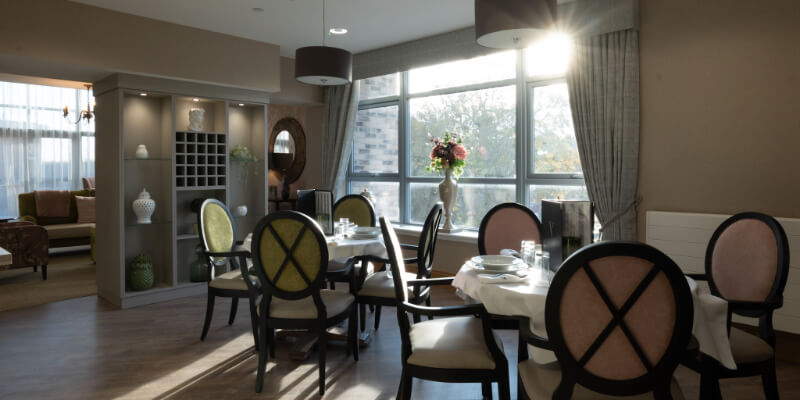
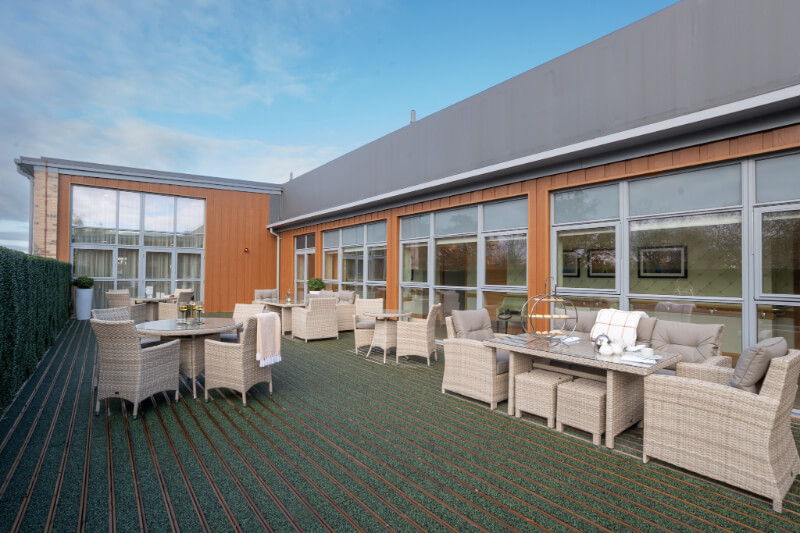

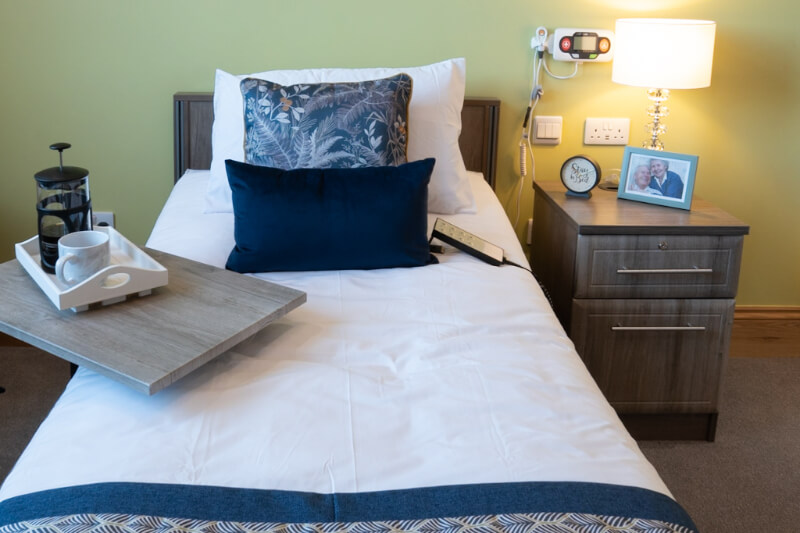
Contact a Member of Our Team to Learn More
We welcome you to visit our home and sit down with our Home Manager to find out more about what we can do for you or your loved one.
If you have any questions about the care services or facilities here at Valerian Court Care Home, you can reach us via email at info@valeriancourtcare.co.uk or phone us on 01235 616800.
Alternatively, you can also complete our online Enquiry Form and one of our team will respond as soon as they can.






